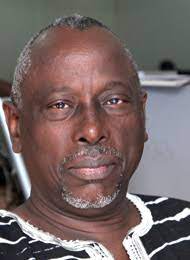Tanzania’s President John Pombe Magufuli came visiting last week and spent two days here. You would hardly know he was in town. He spent a good part of the time with his host, President Paul Kagame, probably comparing notes and learning from each other about how to improve the lot of us they have vowed to serve.

Tanzania’s President John Pombe Magufuli came visiting last week and spent two days here. You would hardly know he was in town. He spent a good part of the time with his host, President Paul Kagame, probably comparing notes and learning from each other about how to improve the lot of us they have vowed to serve.
Then he joined Rwandans in commemoration of the Genocide against the Tutsi.
So work kept him out of the public view. His coming at the start of remembrance week, which is also a time for individual and national grieving, meant his visit was rather low key.
But it is also his style – short on pomp and ceremony, but richer in content and purpose – which he shares with our own president.
He is now back in Dar es Salaam doing what he has done the past five months – waging war on graft, cutting waste in government, and exorcising ghosts in the public service.
It is no easy task.
He will probably get little thanks for his efforts. Of course, ordinary Tanzanians are thrilled that he is wrestling with these monsters and must be praying that he slays them so that they can get what is their due. And for that they must give him their full support.
But almost as certain, he will earn a lot of enemies and they are many and varied.
The fat cats in Tanzania who have prospered in the last ten years must be gnashing their teeth, but more ominously, plotting to stop him from threatening their privileges and lifestyle.
Fellow African leaders, except for a few, must be wondering where this one came from. For these, he is a dangerous example best confined to Tanzania.
Donors (or if you want to be politically correct, development partners) who habitually berate African leaders for corruption, waste and inefficiency are strangely silent about a man who is doing exactly what they insist must be done.
One would have expected a shout of joy: ‘Rejoice ye people of the world. We’ve found he who will slay the monster and let his people enjoy God’s bounty channelled though us’.
And we would joyfully join in chorus: ‘Yes, sing in exultation, for indeed the man has been found, Alleluia’.
But it hasn’t been like that. Lately, the same donors that should be over the moon with what President Magufuli is doing have threatened to cut support to Tanzania. Of course, they cite different reasons.
Praise him or not, hate or fight him, President Magufuli will carry on regardless.
Back here in Rwanda, he has left a very good impression, of a simple but genuine person, one that can be trusted as a friend and relied on as a partner, and a leader with the humility to learn from others. That’s what we got from the few occasions when we heard him speak. Little wonder President Kagame called his time in office refreshing.
He and his guest were refreshing in many other ways.
Usually these state or official visits are very formal things where people say the right words even when they don’t mean them. We have heard presidents who say the nicest things and call each other brother and other flattering names when they would sooner stick a knife in the back of the other.
There is a ritual and the words to go with it. Speeches are like prayers you have learnt by heart and can recite even in your sleep. Occasionally, however, you get leaders who dispense with words of the ritual and speak from the heart.
They fashion their own prayers, so to speak, and speak them with the warmth, feeling and meaning they harbour.
That is what the manner of the two presidents showed last week.
The refreshingly genuine manner of JPM, as he is popularly referred to in Tanzania, augurs well for Tanzania.
That goes without saying. But it also augurs well for relations with neighbours and for the East African Community (EAC). In the last few years Tanzania has been the reluctant partner in the EAC.
It was increasingly looking south and shifting loyalty to SADC. This attitude had created a two-track EAC, with the three northern partners, now four with the accession of South Sudan, in the fast lane and the other two in the south dragging along reluctantly.
Chances of Tanzania getting firmly back into the fold and moving at the same pace with the others are now very good.
There is no doubt that JPM has taken his role as president seriously, as we do here. Presidents are supposed to work. For presidents who work, power is not a privilege, but a responsibility. That is also true for public servants.
They are not kings or emperors who reign and enjoy royal privileges and live off the work of their subjects. We have seen presidents in this region playing at being kings.
For a change, it is refreshing to see another citizen president rolling up his sleeves and putting on his gumboots ready to go to work.
jorwagatare@yahoo.co.uk


